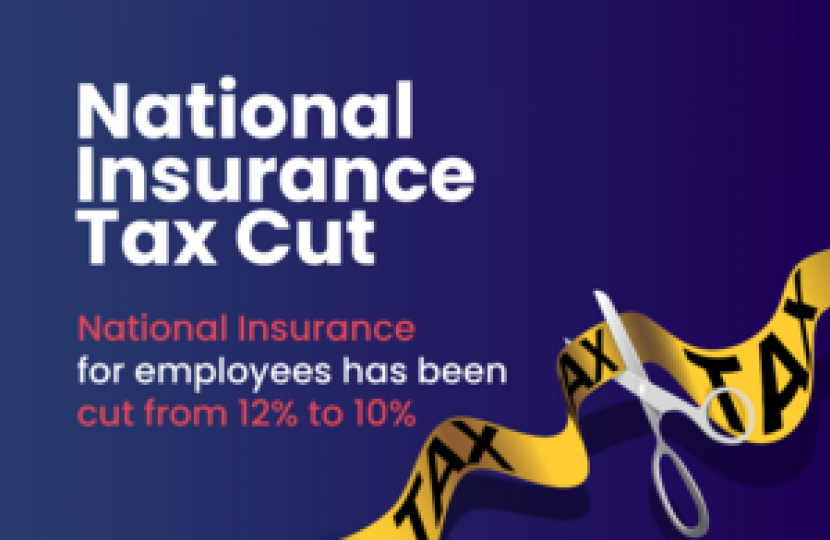
Millions of workers will have seen a boost to their take home pay as January’s pay comes into bank accounts across the UK.
A household with two average earners will be starting to see a nearly £1,000 a year benefit from the Chancellor’s personal tax cut.
Thanks to the progress made against its economic priorities, the government announced the cut in National Insurance by 2p from 12% to 10% at the Autumn Statement and made sure it took effect within weeks of the announcement as part of its plan to reward work and grow the economy. The change is a more than 15% reduction in National Insurance, saving £450 this year for the average salaried worker on £35,400.
Millions of people working different jobs across hundreds of industries will now be better off. To a pub landlord that’s £418 a year, a bus driver £328, a nurse £527. A teacher will pay £635 less in National Insurance contributions this year.
This historic NICs cut takes effect with the government having faced the legacy of Covid-19, and global instability with war in Ukraine and the Middle East.
In the past year, inflation has halved; the economy has recovered more quickly from the pandemic than first thought; and debt is on track to fall. The government is sticking to the plan and is building a stronger economy where hard work is rewarded and ambition and aspiration are celebrated.
Commenting Richard Fuller MP said:
The measures in the Autumn Statement were a good start in delivering Conservative values to get the economy growing. From now, Employee National Insurance Contributions have dropped from 12% to 10%. That’s a £450 tax cut for the average worker earning £35,400, helping people keep more of the money they earn & making work pay.
To mark the tax cut, earlier this month HMRC launched an online tool to help people understand how much they could save in National Insurance this year. The tool uses salary information to give employees personalised estimates of how much they could save because of the government’s changes, and is hosted on the government’s cost of living support website on gov.uk.
The last major cut to the current personal tax system of today’s magnitude was when the National Insurance personal allowance increased from £9,880 to £12,570. This was the largest ever cut to a personal tax starting threshold, allowing working people to hold on to an extra £2,690 free from tax whilst last year taking around 2.2 million people out of paying tax altogether.
At the Autumn Statement the Chancellor Jeremy Hunt announced the biggest package of tax cuts to be implemented since the 1980s. In addition to today’s action, he announced a National Insurance cut for 2 million self-employed people, which will take effect on 6 April 2024 and is worth £350 for the average self-employed person on £28,200. He also made full expensing permanent, which at £11 billion per year is the biggest business tax cut in modern British history helping businesses invest for less. Over 200 business leaders told the government that it would have the single most transformational impact on business investment and growth. The OBR says these two measures will increase the number of people in work and grow the economy.
The Chancellor also announced the biggest ever increase to the National Living Wage, froze alcohol duty for six months and extended cuts to business rates relief for the high street.
For more information please see the National Insurance factsheet and the latest OECD tax on wages data
